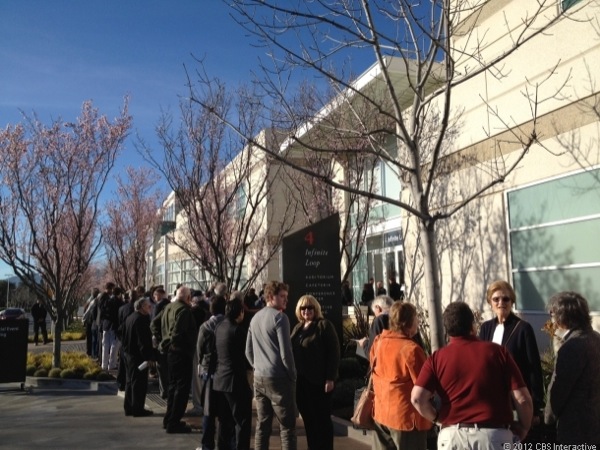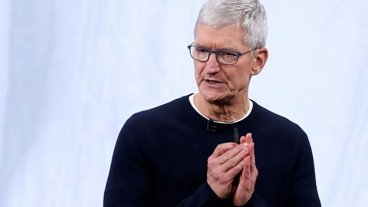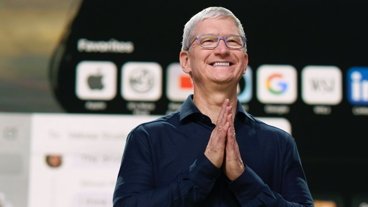Special Report: Tim Cook fields questions on Apple dividends, a stock split, iTunes content deals
Among other questions Cook addressed in the meeting, one shareholder referenced Apple's nearly $100 billion cash pile but asked that Apple not issue a regular common dividend as many pundits have suggested.
Instead, he suggested Apple invest more of its resources into obtaining content for iTunes, matching and improving upon the TV and movie streaming offerings of Netflix and Hulu Plus, building a subscription or a la cart offering for all content, rather than attempting to buy an existing content provider service.
He also suggested that if Apple decided to issue a dividend, it should limit it to preferred shareholders, as a regular dividend would likely be subject to new taxes on the horizon and could have the effect of scaring off regular investors, ultimately using Apple's cash less effectively than the company could itself through direct investment.
Cook responded very much the same as Jobs historically often had, with prepared comments on the general subject before addressing the shareholder's specific comments. Cook noted Apple now has more cash than it needs to run its business, after noting that Apple already spends billions on infrastructure, building out retail, and buying small companies and making IP purchases.
"We spend a lot, but we still have a lot," Cook said, reiterating a comment he previously made in a conference hosted by Goldman Sachs earlier this month.
Cook then addressed the specifics of the question, noting that Apple has lots of content, "most everything" in the music business and around 40,000 movies and 70,000 TV shows, but that it "was not there for the profit," noting that the iTunes Store is targeted to run at break even as a convenience to users, not as a business.
Apple "makes its month from hardware," Cook stated. He specifically added that cable deals were a "complex piece," adding that the economics behind a la carte deals for content providers were "too powerful for the people there," noting that "the reality of an a la carte system like you've described is not likely."
Phil Schiller also noted that Apple aimed to strike a balance between parties, with iTunes' music offerings seeking find a workable middle ground between customers and artists, but noting that that balance is more difficult to find in the cable business.
Outside Apple's 2012 shareholders meeting. | Source: CNet
To split or not
Another shareholder addressed the question of a possible stock split, asking Cook to outline the pros and cons of such a possibility rather that actually recommending a split or not.
Cook stated that Apple's board has been considering both dividends and stock splits very carefully, seeking to do what was best for its shareholders. In examining other companies that had done a stock split, Cook noted that they found that in most cases "a stock split does nothing."
A stock split may cause an initial pop in share prices, thought by some to be related to making a stock seem more affordable to small investors, but over time that price jump returns back to where it was, Cook said.
A possible negative result of a split, Cook pointed out, is that the split simply results in more stocks being issued, resulting in more transactional costs for some buyers, with no real change in value.
 Daniel Eran Dilger
Daniel Eran Dilger











 Andrew Orr
Andrew Orr
 Wesley Hilliard
Wesley Hilliard
 Amber Neely
Amber Neely

 William Gallagher
William Gallagher

 Malcolm Owen
Malcolm Owen








